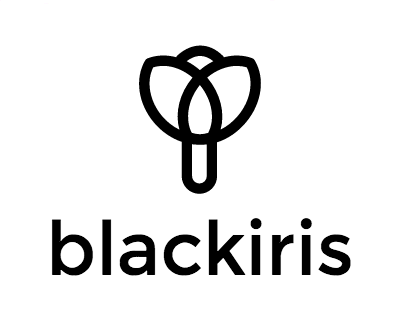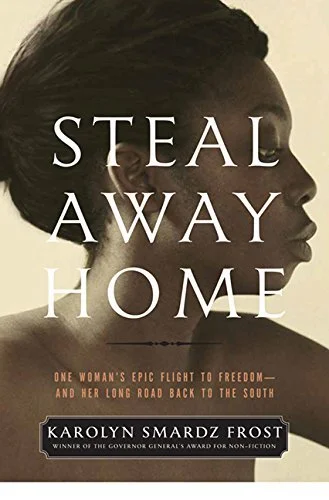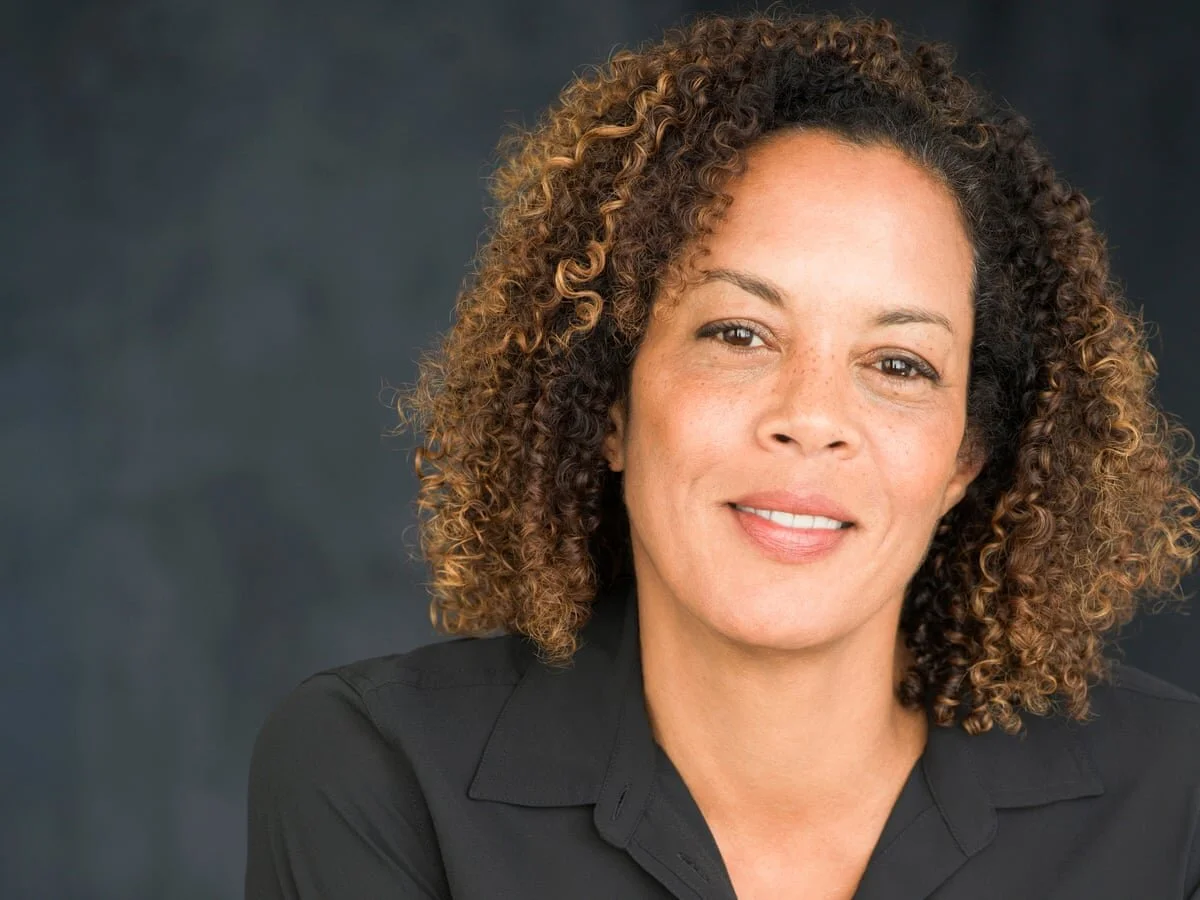The Window Seat: Notes from a Life in Motion. An Interview with Aminatta Forna (Part 2)
The Window Seat: Notes from a Life in Motion.
An Interview with Aminatta Forna
Part 2
In part one of my interview with Aminatta Forna we discussed family, identity, politics, and the western gaze. Other essays in The Window Seat address conflicts between wildlife and human beings. In The Last Vet, Dr. Jalloh advocates for the health and animal rights of Freetown’s numerous street dogs. In Bruno, Forna chronicles the escapades of Sierra Leone’s legendary outlaw chimpanzee. And in Wilder Things she recounts her interaction with London’s foxes and examines the modern lives of American coyotes. These are ideas which enter into her remarkable novel Happiness (2018) about the friendship between an American wildlife biologist and a Ghanaian psychiatrist.
Forna’s longstanding passion for the natural world is finally taking centre stage in her work. Why has it taken so long? “Well,” says Forna, “I was distracted! By a murder, 25 years of dictatorship - and a civil war.”
DBN: One of your favourite books growing up was Gerald Durrell’s My Family and Other Animals. You seemed to have a great deal in common with the young Durrell who also loves wildlife and is a budding naturalist.
AF: I haven’t read that book for a long time.
DBN: I know. But what about it – if anything – has stayed with you?
AF: I read that book when I was a kid. That’s one I would never have thrown away. It disappeared somewhere along the way. I remember how much his life (the young Gerald’s) mirrored mine. Because there were things going on in the adult world which I wanted to understand, but there was also this world. And this was the world that consumed me. In My Family and Other Animals Gerald is always coming into the room when things are going on, holding his frogs. And that was totally what I was like. My father was a political prisoner. My world was dissolving around me. And I didn’t want that to happen because I wanted to think about snakes. And dogs. And frogs.
I think also the connection between the two of us - Gerald and me - is that so much comfort came from that. After I had written The Devil That Danced on the Water my sister asked, “How did you stay sane?” And I think it was the dogs and the animals that I was focused on. That didn’t mean I didn’t try to understand the adult world, but it wasn’t my only world. And the animals were a place of safety – they were a haven for me. And I understood animals in a way I didn’t understand humans.
DBN: Yes, but what do you mean by that?
AF: I can understand humans now, but I don’t like the way they are. Whereas I can understand animals: You know, a predator is going to act like a predator, right? An ungulate is going to act like an ungulate. A snake is going to act like a snake. They may be dangerous, or they may be harmless, but you know where you stand with them in a way that I never found that I knew where I stood with humans.
Because we were betrayed so much. I mean, some of the things I could tell you, Donna. The betrayals around us in those days were phenomenal. And the ability of humans to betray another human is phenomenal. And to my knowledge animals simply do not act that way. Apes do. But even apes are better, frankly, at standing together.
DBN: They’re tricky, though, like the chimpanzee in your essay Bruno.
AFN: Yes. They’re tricky. But they’re less dishonest. I remember when I was writing The Devil That Danced on the Water finding the accounts that the government held for all the people who were in its pay as spies. And I managed to get copies and take them home to my stepmother and she looked at them and said, “Yes, that was our driver; Yes, that was somebody who hung around.” Those people who hung around us were in the pay of the government.
But even beyond that, once things really started to become very dangerous and bad for my family, people we thought were our friends just couldn’t wait to ditch us. After my father was killed my stepmother told me how, so often she would walk down the road, and somebody would cross the street. These were people whom at some point we had helped. I understand everybody tries to protect themselves and their family, but these are people with whom you’d think there’d be some degree of loyalty, some kindness. I found more loyalty and kindness in the animal world.
I am now writing more about the first love of my life which is the natural world. A friend of mine, an environmental journalist who I’ve known for 30 years said, “I didn’t know you were interested in the environment.” And I immediately became irritated. I said, “Well, I was distracted. By a murder, 25 years of dictatorship, and a civil war. That’s what happened to me!” I mean he wasn’t distracted by anything, this white man who inherited a farm in New England.
So, I do often think about the lives of people like you and me, Donna. And I do remember what Toni Morrison said when she said race is a distraction. They keep you busy with it. Race is just one of my many distractions. I don’t regret at all writing The Devil That Danced on the Water or any of the books that came after it. I think that’s what writers are for. That’s my view. I had to respond to the crisis that my country was in. I couldn’t not have responded to it. But yes! Would I rather have been collecting spiders? Actually, not spiders. But in my imaginary life, or if the world was a peaceful place…
DBN: Or if you were a white guy…
AF: Yes. If I was a white guy, or if the world was a peaceful place, I would probably be a wildlife biologist.
DBN: In the essay Wilder Things you describe your relationship with foxes in London, the modern lives of coyotes and the stand-off between deer and homeowners in North Arlington, Virginia. The piece also introduces us to wildlife biologist Stephen DeStefano whom you accompanied on coyote-sighting excursions. Did DeStefano inspire you to write the novel Happiness, which is partly about the uneasy coexistence of human beings and wildlife?
AF: No. I already had some idea about Happiness forming in my mind by then. I began thinking about the book when I moved to the States and saw the proximity of human and wildlife in a way that is less evident in Britain, but still evident in London in the form of the foxes, in particular.
I really began to think about the city as this layered space in terms of either poverty and wealth, or immigrant and non-immigrant, or children and adults. I started thinking about cities as these multi-layered dimensions. The book seems to be a lot about buildings. I really don’t care about buildings. And my husband’s great like that. He thinks in those sorts of shapes and forms.
But I could see the way the society was stratified: the human and non-human and all of these people living in the city at different times and different places, nighttime, daytime, different proximities to power. And I remember at one point when I was writing Happiness saying to somebody, “Have you ever seen a child in the city of London?” (The city of London is the financial district, rather like Wall Street). So, I asked, “Have you ever seen a child in the city of London.” And they said, “I’ve never seen a child in the city of London.” I mean, I’ve never seen a child in the city of London! So, the book is all about what parts of the city we inhabit, when are we allowed to inhabit them, under what conditions, and at what times.
And I decided that animals were part of that. That animals also inhabit the history of a city, but at different times and in different places. And they are generally not welcome, anyway. Except by some people: Some people love the foxes. Some people hate the foxes.
I was in Williamstown in western Massachusetts when I came across a book called Coyote at the Kitchen Door. I actually looked up in the acknowledgements and saw where the author, Stephen DeStefano, lived. I realized he’s not that far from me. But I was about two weeks from leaving America, so I wrote him a very pleading and pleasant note. And we began a relationship that went on quite a long time. He helped me a lot with the writing of Happiness - helping with the research, checking my facts.
DeStefano and his wife , who is also a wildlife biologist, invited me to stay at their house, but I didn’t because it would have been too much of an imposition. I rented a house near by and they took me on their woodland walks and a lot of what they told me informed that book. Especially the character of Jean, the American wildlife biologist (who is studying the foxes of London), because the trait that I saw in both him and his wife - and my good friend Rosa and everybody who is a biologist - is that they really get annoyed with people. They have this frustration with the way humans are so conflicted, and the way humans just can’t see the world as it is, and the way humans want to make the world perfect for humans and at the same time be sentimental about animals when it suits them. I gave those properties to Jean.
DBN: Jean is one of the few characters in your books that actually reminds me of you.
AF: There’s a little bit of me, as well, in Attila, the Ghanaian psychiatrist Jean befriends.
DBN: Yes, that’s true.
Urban fox in London
DBN: One of the things I get from your work is a gentle, yet repeated, reminder that we humans are just one of many living species. You point out that Christians are behaving as rulers of wildlife rather than as stewards as the Bible instructs.
AF: I spent a long time studying Christianity when I was younger. I was very interested in religion. And I never, ever, ever found faith. I never found faith. But I was very interested. I was taught by a canon, like a reverend. I was taught philosophy of religion. He knew he had somebody who didn’t fundamentally believe and that it came down to faith in the end. We would go back and forth, back and forth, over the teachings of the Bible and philosophy of religion and in the end where we arrived at - and the man is still a great friend of mine - is that you either have faith or you don’t have faith. And I don’t have faith.
But since then, and since coming to America, I’ve been even more interested in Christianity, because American Christianity does not mirror the Christianity I understood, at all. It’s not kind. My jaw has dropped coming to America at many of the people who call themselves Christian in this country- that they could conceivably call themselves Christian! And it mirrors in no way the Christianity I understood. I didn’t have faith; I just didn’t believe that there was a God doing all of those things. But I understood the integrity. I also liked the kindness. Then you come to America and, oh my God! Where did the kindness go?
DBN: In your writing about wildlife are you making a comparison between human beings’ mistreatment of animals and their mistreatment of people they deem different?
AF: I’m obviously not equating human beings with animals. But I am saying something about common decency. With animals it’s about finding a humility. There’s a continuum. We’re on the top now because we build cities, and we have guns. But when you’re wandering through the bush on your own, you’re just a walking meal. You’re fine when you’ve got everything around you. But when you start wandering through the rainforest or the savanna in East Africa you realize, I’m just a steak!
I think in general terms, it’s all about our place in the world and understanding that we treat everybody and everything with respect, decency, and kindness. And, I would say - even with animals – equality. They have a place in the world. And we are now beginning to realize with the pandemic that we are interconnected; that when we cut down the places where bats roost, the bats move to where we live, and we don’t have dominion and control. The bats move to where we live, and they bring with them their great reservoirs of disease as the gift of a guest.
I think of it more as I think of the city. There has always been this great interconnectedness. And maybe something will have a greater balance of power in the system. But it doesn’t mean that you are actually better. It just means something is favouring you at a particular moment.
This was part two of an interview that was conducted by Zoom on July 15, 2021.







